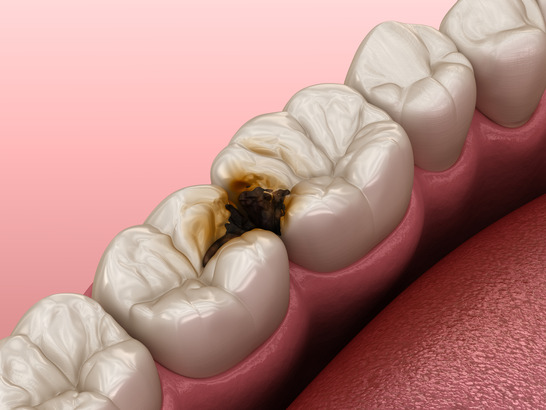
Transform Your Smile with Dental crowns
Whether you need a crown after a root canal, to repair a damaged tooth, or to complete a dental implant, we provide personalized care to meet your unique needs. With our focus on precision and patient satisfaction, we’ll help you restore your smile with confidence.
Book your dental crown consultation today at Thorncrest Dental in Etobicoke
Book nowThorncrest Dental: Commitment to Quality
We are committed to delivering quality dental care in a warm and inviting atmosphere. Our goal is to make sure each patient leaves our clinic with a healthier, more radiant smile.
A Comprehensive Guide to Dental crowns
Dental crowns are a versatile solution for restoring damaged or weakened teeth, helping improve both the function and appearance of your smile. At Thorncrest Dental, we provide high-quality dental crowns that are customized to meet your specific needs.
What Are Dental Crowns?
A dental crown is a custom-made cap placed over a tooth to restore its shape, size, strength, and appearance. Crowns protect and cover teeth that have been weakened by decay, fractures, or large fillings. They are designed to look and function like natural teeth, seamlessly blending with your existing smile.
Benefits of Dental Crowns
Dental crowns offer a wide range of benefits for those needing restorative dental care:
- Strengthening Weakened Teeth: Protects teeth damaged by decay, cracks, or large fillings.
- Restoring Functionality: Allows you to chew and speak properly, even with compromised teeth.
- Aesthetic Enhancement: Crowns can improve the appearance of discolored or misshapen teeth.
- Durability: Crowns provide long-lasting protection and can endure daily wear and tear.
- Versatility: Used for a variety of dental conditions, from decay to cosmetic improvements.

Types of Dental Crowns
Thorncrest Dental offers several types of crowns, each suited to different needs:
- Porcelain Crowns: Ideal for front teeth, they blend naturally with your smile.
- Metal Crowns: Known for their durability, they’re often used for molars.
- Porcelain-Fused-to-Metal (PFM) Crowns: Combines the strength of metal with the aesthetic appeal of porcelain.
- Zirconia Crowns: Extremely durable and aesthetic, suitable for both front and back teeth.
Who Is a Good Candidate for Dental Crowns?
If you have a damaged or decayed tooth that can’t be fixed with a filling, you may be a candidate for a dental crown. Common situations where crowns are recommended include:
- Cracked or broken teeth.
- Teeth with large fillings or root canals.
- Teeth that have undergone significant wear and tear.
- Teeth needing aesthetic improvement (discoloration or misshaping).

The Dental Crown Procedure
The process for getting a dental crown is straightforward and typically involves two visits:
- Initial Consultation and Tooth Preparation: The tooth is reshaped to make room for the crown, and impressions are taken to create a custom-fit crown.
- Temporary Crown Placement: While the permanent crown is being made, a temporary crown is placed to protect the tooth.
- Permanent Crown Placement: Once the permanent crown is ready, it is cemented onto the prepared tooth.
Longevity and Maintenance
With proper care, dental crowns can last 10-15 years or longer. To maximize their lifespan:
- Practice Good Oral Hygiene: Brush and floss daily to prevent decay around the crown.
- Avoid Hard Foods: Refrain from biting on hard objects that could damage the crown.
- Regular Dental Visits: Schedule check-ups to monitor the health of your crown and surrounding teeth.
Cost of Dental Crowns
The cost of a dental crown varies depending on the material used and the complexity of the case. Some dental insurance plans may cover part of the cost, and Thorncrest Dental provides flexible payment options to make the procedure affordable.
Before and After Care
- Pre-Procedure: Avoid biting hard foods after your tooth has been prepared, as it may be fragile until the crown is placed.
- Post-Procedure: After the crown is placed, you may experience slight sensitivity, but this will subside within a few days. Maintain good oral hygiene and avoid hard or sticky foods initially.

Frequently Asked Questions (FAQ)
1. What is a dental crown?
A dental crown is a custom-made cap that covers a damaged, decayed, or weakened tooth to restore its shape, size, strength, and appearance. It can also protect a tooth after a root canal or support a dental bridge. Crowns are made to match your natural teeth, providing both functional and aesthetic benefits.
2. How long do dental crowns last?
Dental crowns can last anywhere from 10 to 15 years, or even longer with proper care. Factors such as the material used, oral hygiene practices, and habits like teeth grinding can impact their longevity. Regular dental visits and avoiding hard foods can help prolong the lifespan of a crown.
3. Are dental crowns noticeable?
Modern crowns, especially those made from porcelain or zirconia, are designed to blend seamlessly with your natural teeth. They are custom-colored to match the shade of surrounding teeth, making them virtually unnoticeable. This makes them an excellent choice for both front and back teeth.
4. Does getting a dental crown hurt?
The process of getting a dental crown is typically painless because a local anesthetic is used to numb the area. You may experience some discomfort or sensitivity after the procedure, especially if the tooth had a root canal or if the crown was placed near the gum line, but this discomfort usually subsides within a few days.
5. How do I care for a dental crown?
Caring for a dental crown is similar to caring for natural teeth. Brush and floss daily, paying special attention to the area where the crown meets the gum. Avoid chewing on hard objects like ice or pens, as they could damage the crown. Regular dental check-ups are essential for monitoring the health of the crown and surrounding teeth.
6. Can dental crowns be whitened?
No, dental crowns are made from materials that do not respond to teeth whitening treatments. If you are considering teeth whitening, it’s recommended to whiten your natural teeth before getting a crown so that the color can be matched. If the crown becomes discolored, it may need to be replaced to match your natural teeth.
7. What types of dental crowns are available?
There are several types of crowns, including:
- Porcelain crowns: Natural-looking, ideal for front teeth.
- Metal crowns: Durable and long-lasting, typically used for molars.
- Porcelain-fused-to-metal (PFM) crowns: Combines strength with aesthetics.
- Zirconia crowns: Highly durable and visually appealing, suitable for both front and back teeth.
8. Are crowns covered by insurance?
Most dental insurance plans cover a portion of the cost of crowns if they are deemed medically necessary for restoring function or protecting a tooth. Cosmetic crowns may not be covered. It’s important to check your specific insurance plan for coverage details, as out-of-pocket expenses will vary.
9. How long does the crown procedure take?
The dental crown procedure typically requires two appointments. During the first visit, the dentist will prepare the tooth, take impressions, and place a temporary crown. The second visit occurs after the custom crown is made (usually within 1-2 weeks), during which the permanent crown is placed and adjusted for a proper fit.
10. What happens if my crown falls out?
If your crown falls out, contact your dentist as soon as possible. While waiting for your appointment, avoid chewing on the affected side and try to keep the area clean. The dentist will likely be able to re-cement the crown if it is intact, but if it’s damaged, a new crown may be necessary.
How do dental crowns differ from dental fillings?
Dental crowns and fillings are both common treatments used to restore damaged teeth, but they serve different purposes depending on the extent of the damage. Crowns provide full coverage and protection for severely compromised teeth, while fillings are used to repair small areas of decay or minor damage.
Understanding the differences between these two treatments helps ensure the best approach for maintaining a healthy, functional smile.
Here is a table that summarizes main differences between dental crowns and dental fillings:
Teeth Crowns
- Coverage: Covers the entire tooth, providing full protection and restoration.
- Material: Made from materials like porcelain, ceramic, metal, or resin.
- Purpose: Used to restore severely damaged, cracked, or weakened teeth.
- Durability: Strong and durable, lasting up to 15 years or more with proper care.
- Procedure: Requires two visits—one to prepare the tooth and take impressions, and another to place the custom crown.
- Cost: More expensive due to the materials, custom creation, and complexity of the procedure.
Dental Fillings
- Coverage: Fills small areas of decay or damage in the tooth without covering the entire structure.
- Material: Typically made from composite resin, amalgam, gold, or ceramic.
- Purpose: Used to repair minor cavities or damage to the tooth’s surface.
- Durability: Less durable than crowns, lasting 5-10 years on average.
- Procedure: Usually completed in a single visit with minimal tooth preparation.
- Cost: Less expensive than crowns, as the procedure and materials are simpler.
Get the smile you deserve
Book your dental crown consultation appointment now

Why Choose Thorncrest Dental for Composite dental crowns in Etobicoke?
At Thorncrest Dental, we pride ourselves on providing high-quality dental crowns that are tailored to each patient’s needs. Our experienced team uses the latest technology to ensure precise, comfortable, and lasting results. We take the time to understand your goals, offering personalized solutions that restore your smile’s function and appearance.
Dental crowns are a reliable and effective solution for damaged or weakened teeth. At Thorncrest Dental, we offer a range of crown options designed to restore your smile’s strength, function, and beauty.

Limited time: Our dental bonding consultation is only $60

